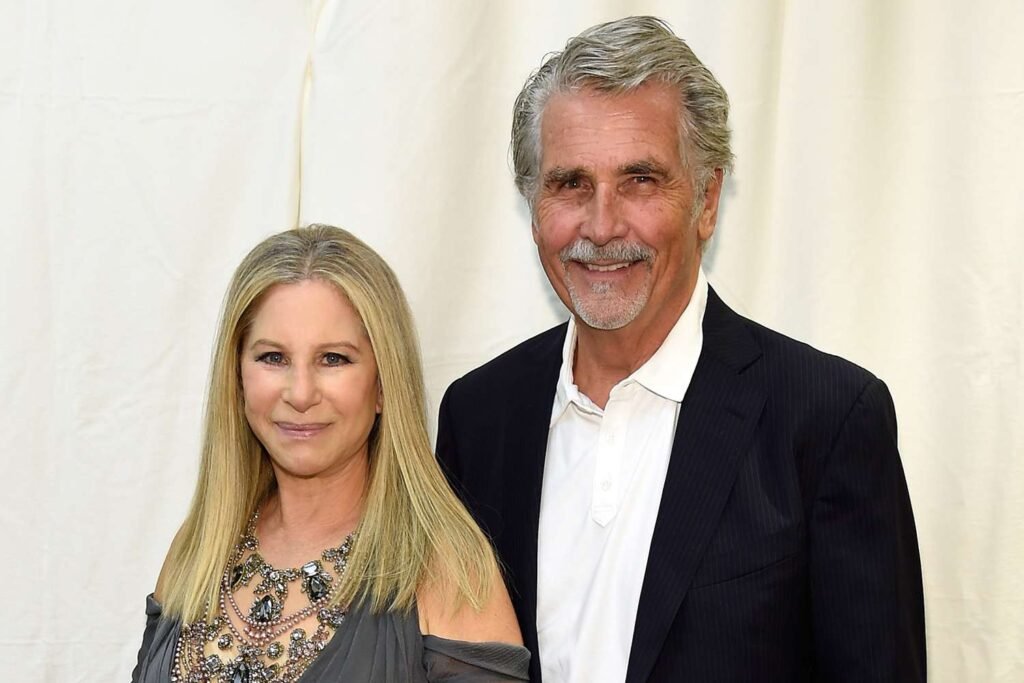Introduction: Barbra Streisand and Her Political Views
Barbra Streisand is a name that resonates with excellence in the entertainment industry. With a career spanning over six decades, Streisand has made an indelible mark as a singer, actress, and director.
Her artistic prowess is underscored by numerous awards, including two Academy Awards, ten Grammy Awards, and five Emmy Awards.
Not just a luminary in the realm of arts, Streisand is also known for her bold political stance and active engagement in advocacy.
Throughout her career, Barbra Streisand has been a vocal advocate for a range of political and social issues. Her political engagement is not just a recent development but has been evident since the 1960s. She has consistently supported the Democratic Party and been a staunch advocate for progressive causes, including women’s rights, LGBT rights, and environmental conservation. Her advocacy extends beyond mere endorsements as she often intertwines her artistic expressions with political messages, influencing public opinion through her wide-reaching platform.

Barbra Streisand
A prominent example of her public political stance was during the 2016 presidential election, where Streisand was an outspoken critic of then-candidate Donald Trump. She publicly supported Hillary Clinton and participated in fundraising events for the campaign. Streisand’s political advocacy did not wane post-election, as she continued to critique Trump’s policies and administration through various public statements and social media platforms. Her recent comments regarding the 2024 presidential election underscore her ongoing commitment to political discourse and her concerns about the country’s future direction under another potential Trump administration.
Understanding Barbra Streisand’s longstanding involvement in political issues is crucial to comprehending her recent statements about possibly leaving the U.S. if Donald Trump wins the 2024 election. Her remarks are deeply rooted in her historical advocacy for progressive values and her ongoing commitment to influencing the political landscape. This background sets the stage for her latest declarations, highlighting the gravity with which she views the potential outcomes of the next presidential race.
Streisand’s Statement: The Reasons Behind Her Stance
Barbra Streisand recently made headlines when she expressed her intent to leave the United States should Donald Trump win the 2024 presidential election. The acclaimed singer and actress conveyed her thoughts during an interview with a prominent media outlet, illustrating her profound concerns regarding the potential impact of another Trump presidency on the nation. During this conversation, Streisand emphasized the ideological chasm between her and the former president, touching upon the stark contrasts in their political beliefs and values.
Streisand has long been an outspoken advocate for progressive causes, often utilizing her platform to address issues she considers imperative to the nation’s well-being. In her statement, she articulated fears that Trump’s return could exacerbate existing societal divisions and undermine various democratic principles she holds dear. Streisand pointed to specific policies and actions during Trump’s previous term that she felt were detrimental to the country’s progress, particularly in areas such as climate change, healthcare, and social justice.
In a series of tweets and public appearances, Streisand reiterated her discontent, painting a picture of a future under Trump that is starkly at odds with her vision for America. She cited Trump’s handling of the COVID-19 pandemic, his approaches to immigration and environmental issues, and his divisive rhetoric as key factors driving her resolve. For Streisand, Trump’s brand of leadership represents a fundamental threat to the inclusive and equitable society she envisions.
The entertainer’s statements sparked a significant amount of discussion across various media platforms, reinforcing her role as a prominent figure in the political discourse. Streisand’s vow to leave the country can be seen not only as a personal decision but also as a broader commentary on the ideological battle lines drawn in contemporary American politics. Through her words, Streisand invites a deeper reflection on the ideological divides shaping the future of the United States under potential leadership changes.
Barbra Streisand’s announcement of her potential departure from the United States should Donald Trump secure the presidency in 2024 has ignited a maelstrom of reactions across various platforms. Fans of the renowned artist have overwhelmingly expressed support, emphasizing their alignment with her political views. Many share her apprehensions regarding the potential implications of Trump’s presidency and laud her for taking a firm stance on such a polarizing issue. Supporters on social media have flooded platforms like Twitter and Instagram with messages of encouragement, reflecting a broader sentiment of solidarity.
Conversely, critics have not been silent. Detractors argue that Streisand’s declaration is merely an attention-seeking tactic, aiming to sway public opinion rather than a genuine intention. Political commentators from conservative circles have voiced their disapproval, accusing Streisand of using her celebrity status to interfere unduly in the political arena. This segment of the public perceives her statement as a calculated move to influence the upcoming election, rather than a principled stance.
News articles and opinion pieces have also contributed to the diverse discourse surrounding Streisand’s statement. Major outlets like CNN and Fox News have published varied interpretations, some underscoring the gravity of her sentiments, while others dismissing her pronouncement as another example of Hollywood meddling in politics. Opinion writers have explored the broader implications of celebrities wielding their influence in political matters, raising questions about the intersection of fame and political activism.
The reactions encapsulate a complex web of perspectives, mirroring the country’s broader political divide. In this landscape, Streisand’s words have not only sparked debates but have also brought to light the intensely polarized nature of current American society. Whether viewed as a commendable act of courage or a divisive ploy, her statement undeniably continues to reverberate across multiple channels of public discourse.
The Broader Implications: Celebrities and Political Influence
Throughout modern history, celebrities have wielded significant influence in the political arena. Their ability to shape public opinion is a phenomenon that has become even more pronounced with the rise of social media. Barbra Streisand’s recent statements concerning her intentions to leave the U.S. if Donald Trump wins the 2024 Presidential Election underscore this trend. Her position is not just a simple personal decision but a reflection of the broader role that figures in the entertainment industry play in political discourse.
Historically, celebrities have often used their platforms to sway public opinion and impact political outcomes. In the 1960s, Jane Fonda’s anti-Vietnam War activism became a defining element of the era’s political landscape. Similarly, more recent examples include Oprah Winfrey’s endorsement of Barack Obama during the 2008 presidential election, which is often credited with significantly boosting his campaign. The dynamics of such endorsements and political positions can be profound, given the vast followings these celebrities command.
As for Barbra Streisand, her statement carries potential implications for her fanbase and the general public. Streisand, an accomplished singer and actress, has millions of followers who might look up to her opinions and viewpoints. Her public declaration could thus potentially influence her fans’ voting behaviors, perhaps mobilizing them against Donald Trump or towards other candidates. This kind of influence fosters a more politically engaged public, albeit through the lens of celebrity-aligned perspectives.
Furthermore, the intersection of celebrity and politics raises questions about the responsibility of public figures in political debates. While they undoubtedly have the right to express their views, the ethical implications of how they wield that influence cannot be ignored. Celebrities, including Streisand, must navigate the delicate balance between personal convictions and public responsibility. Their pronouncements can propagate significant shifts in public discourse, thereby affecting the democratic process.
In essence, the ramifications of celebrities making political statements are multifaceted and substantial. Barbra Streisand’s recent comments exemplify the consequential role public figures continue to play in shaping political realities and engaging voter bases in contemporary democratic societies.
News
Leaked Media Plan Says Travis Kelce & Taylor Swift Will Announce Their Breakup This Month – But His PR Company Says It’s Fake
Are we in the final month of Tayvis? UPI/Alamy Live News Ever since going public with their relationship last year, Taylor Swift and star Kansas City Chiefs tight end Travis…
Ben Affleck is pensive while leaving his office after ‘moving his things out’ of $60M mansion he shared with Jennifer Lopez as she smiles in new video
Ben Affleck and his ‘estranged wife’ Jennifer Lopez seem to be on two different planets these days The 51-year-old Oscar-winning star looked far from thrilled on Thursday…
Doctor and ‘ketamine queen’ to face trial next year over death of Matthew Perry
A doctor and a woman dubbed “the ketamine queen” will face a joint trial in March 2025 following the death of Friends star Matthew Perry, a judge…
EXCLUSIVERHOC’s Tamra Judge, 57, reveals pain from ‘brutal’ brow lift and CO2 laser treatment – as she swears off having more plastic surgery
Real Housewives of Orange County star Tamra Judge has vowed to stop going under the knife after a ‘brutal’ brow lift, CO2 laser facial and chemical peel left her in…
Jennifer Lopez and Ben Affleck’s split could ‘get ugly’ due to lack of prenup ahead of their Las Vegas elopement
Jennifer Lopez and Ben Affleck are doing their best to amicably divide their assets, but the process hasn’t been easy. As the stars negotiate the end of their two-year marriage with…
Gigi Hadid, 29, and Bradley Cooper, 49, pack on the PDA as she shows off her stunning bikini body while on family getaway in Italy
Gigi Hadid bared her bombshell bikini body as she and her shirtless boyfriend Bradley Cooper frolicked on a yacht off the Italian coastline during their summer holiday. The 29-year-old supermodel,…
End of content
No more pages to load











